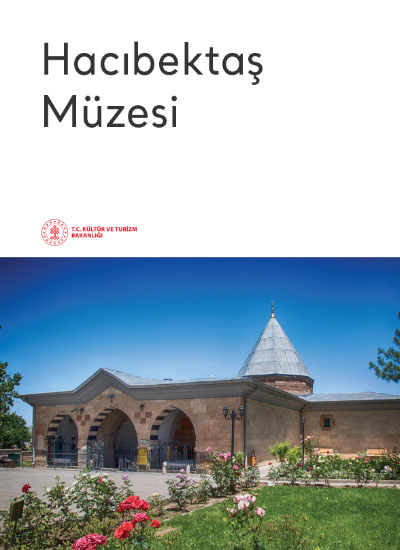The Haji Bektash Veli Complex The Haji Bektash Veli Complex comprises three principal sections, namely courtyards. The first courtyard is accessed via a monumental gateway. The Üçler Fountain is situated to the right of the entrance. The second courtyard is entered through the Üçler Gate. The Lion Fountain, Baba Mansion, Soup Kitchen, Square Pool, Guest House, Square House, Cellar House, and Dedebaba mansion are located within this courtyard. The third courtyard is entered through the Atlılar Gate. The Atatürk Corner, Father’s House, Balım Sultan Tomb, Blackberry Tree, Burial Area, and Private Garden are located within this courtyard. The Father’s House, which was established gradually between the 13th and 16th centuries, includes the tomb of Haji Bektash Veli. It comprises an entrance, a dervish’s trial and suffering area, a middle portal, a masjid, Kırklar Square, a private garden and a Güvenç Abdal Tomb. The Balım Sultan Tomb houses the symbolic coffins of Balım Sultan and Kalender Çelebi. Hacıbektaş Archaeology and Ethnography Museum The initial two sections of the museum are dedicated to archaeological artefacts and items unearthed during the 1967-1976 excavations of Sulucakarahöyük Mound, which had been continuously inhabited from the Early Bronze Age to the Roman Period. The chronological exhibition is supported by introductory boards that provide an overview of the settlement. The coin section displays coins from the region, accompanied by introductory panels. The ethnographic hall displays a range of artefacts from the Ottoman era, including carpets and rugs, items of stonemasonry, women’s clothing and accessories, and items used in daily life. Hacıbektaş Atatürk Museum The house where Mustafa Kemal Atatürk, later known as Gazi Mustafa Kemal Pasha, stayed for one night on 22-23 December 1919 on his return journey to Ankara following the Sivas Congress, has been converted into a museum and opened to the public since 2001. The museum displays ethnographic works.
HACIBEKTAŞ MUSEUM


